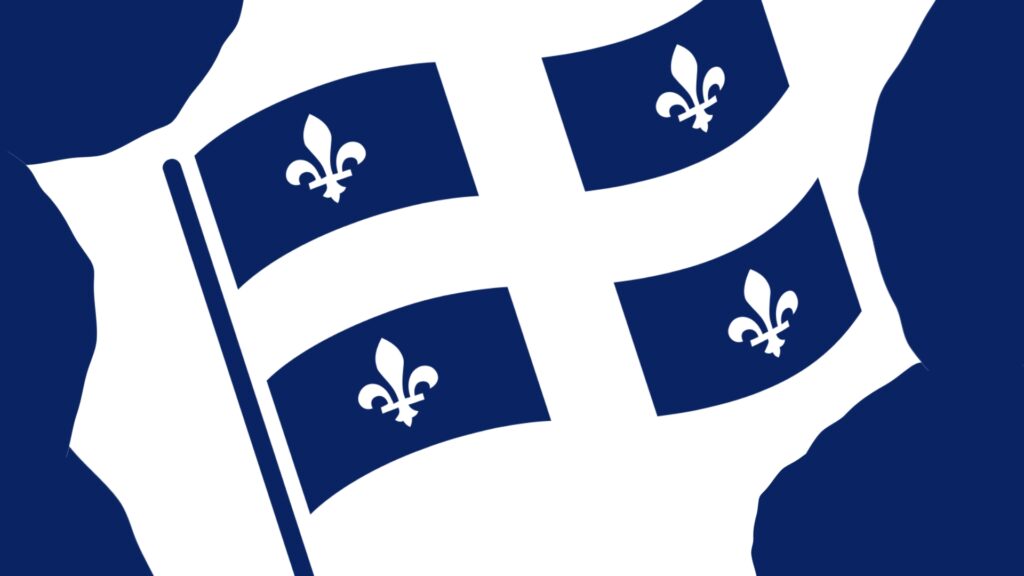
For many Québecers, Saint-Jean-Baptiste Day carries a strong emotional association and sense of identity. But beyond the neighborhood parties and music concerts, how much do you really know about the Fête nationale ?
This year, to commemorate this important date, we’re offering a special edition: a questionnaire that will help you discover some of the most significant events in the history of this tradition and of the province of Québec. Below, you’ll find five questions. Try to answer them yourself, then click on the drop-down menu to reveal their answers.
Each answer is based on articles from journals disseminated on our platform. Feel free to browse the full articles, or explore the journals from which they are taken to satisfy your curiosity.
And don’t forget to share your results with us on social media !
What Do You Know About Saint-Jean-Baptiste Day ?
Answer: The Société Saint-Jean-Baptiste de Montréal
“Between the June 24th celebration and the Société Saint-Jean-Baptiste […] the relationship is indisputable.” (Robert Rumilly, 1947)
Founded in 1834 by journalist and patriot Ludger Duvernay, the Société Saint-Jean-Baptiste de Montréal brought together young patriots with a shared passion for politics and literature. It was Duvernay who came up with the idea of an annual festival in honor of French Canadians, and who chose Saint-Jean-Baptiste Day to celebrate it, echoing the tradition of Saint-Jean feasts celebrated in Québec as early as the sixteenth and seventeenth centuries.
Find out more :
- Rumilly, Robert. “Quand la Société Saint-Jean-Baptiste a-t-elle été fondée ?” Revue d’histoire de l’Amérique française, volume 1, number 2, September 1947, p. 237–242. https://doi.org/10.7202/801368ar
Racine, Denis. “La Société Saint-Jean-Baptiste de Montréal.” Cap-aux-Diamants, number 114, summer 2013, p. 47–48. https://id.erudit.org/iderudit/69455ac
Answer: O Canada
The national anthem was first sung at the first Catholic congress of French Canadians, on June 24, 1880. Writer and lawyer Adolphe-Basile Routhier wrote the patriotic text, and Calixa Lavallée composed the music.
Find out more :
- Du Berger, Jean. “Les Plaines, les Plaines d’Abraham, le Parc des Champs de bataille.” Ethnologies, volume 16, number 1, 1994, p. 107–117. https://doi.org/10.7202/1083302ar
Answer : Lundi de la Matraque.
These clashes, which took place on Sherbrooke Street in Montreal during the Saint-Jean parade, resulted in 135 injuries and some 300 arrests. The context was particularly tense: during the 1960s, sovereignist movements had campaigned vehemently, and sometimes violently, for Québec’s independence. Moreover, in 1968, the Société Saint-Jean-Baptiste de Montréal invited Liberal candidate Pierre-Elliott Trudeau – not known for his support of the independence movement – to take part in the festivities, fanning the flames of militant indignation !
Find out more :
- Comeau, Robert, et al. “Le RIN, parti indépendantiste : 1963-1968 : présentation.” Bulletin d’histoire politique, volume 22, number 3, spring-summer 2014, p. 11–16. https://doi.org/10.7202/1024140ar
Answer: Robert Charlebois, Gilles Vigneault, Claude Léveillée, Jean-Pierre Ferland, and Yvon Deschamps.
The 1970s were undeniably a milestone in the history of Québec’s music. The opening show of the Superfrancofête, an event that took place in August 1974, brought together Félix Leclerc, Gilles Vigneault and Robert Charlebois on the same stage for the first time. The following year, the Saint-Jean-Baptiste musical festivities were organized by Lise Payette and enjoyed similar success. It was in 1975 that Félix Leclerc first sang his classic Gens du pays ! Two years later, the feat was repeated not once but twice more : Charlebois, Vigneault, Léveillée, Ferland and Deschamps took to the stage first in Québec City on June 21st, then in Montreal for the Fête nationale. Their performance was immortalized when it became one of the best-selling records in Québec history, and was broadcast on national television.
Find out more :
- Laberge, Yves. “Médias de l’histoire.” Cap-aux-Diamants, number 110, summer 2012, p. 66–67. https://id.erudit.org/iderudit/67607ac
- Lelièvre, Denys. “La parole en héritage.” Québec français, number 160, winter 2011, p. 88–90. https://id.erudit.org/iderudit/61640ac
Answer: The announcement of the failure of the Meech Lake Accord
In the early 1980s, the Canadian government began the process of repatriating Canada’s Constitution without Québec’s support. In 1987, the Québec government ended up proposing five amendments, grouped together in the Meech Lake Accord, to ensure that the Canadian Constitution would recognize the distinctive character of Québec society. Despite several years of negotiations, two provinces – Manitoba and Newfoundland and Labrador – refused to ratify the Accord, and on June 23rd, 1990, the failure of this constitutional project was announced. In Québec, sovereignist sentiment exploded, and the Saint-Jean-Baptiste festivities drew historic crowds despite the bad weather !
Find out more :
- Rouillard, Jacques. “Historique de l’appui à l’indépendance politique du Québec par le mouvement syndical.” Bulletin d’histoire politique, volume 20, number 3, spring 2012, p. 103–123. https://id.erudit.org/iderudit/1056202ar
- Bédard, Éric. “Zubrzycki, Geneviève. Jean-Baptiste décapité. Nationalisme, religion et sécularisme au Québec, trad. Nicolas Calvé. Montréal, Boréal, 2020, 292 p.” Revue d’histoire de l’Amérique française, volume 75, number 1-2, summer–fall 2021, p. 234–237. https://id.erudit.org/iderudit/1088232ar